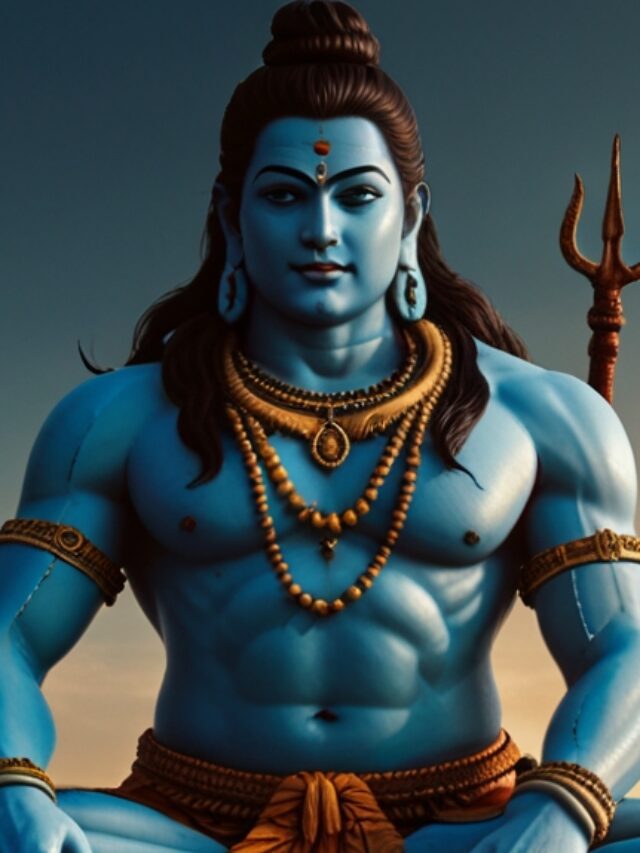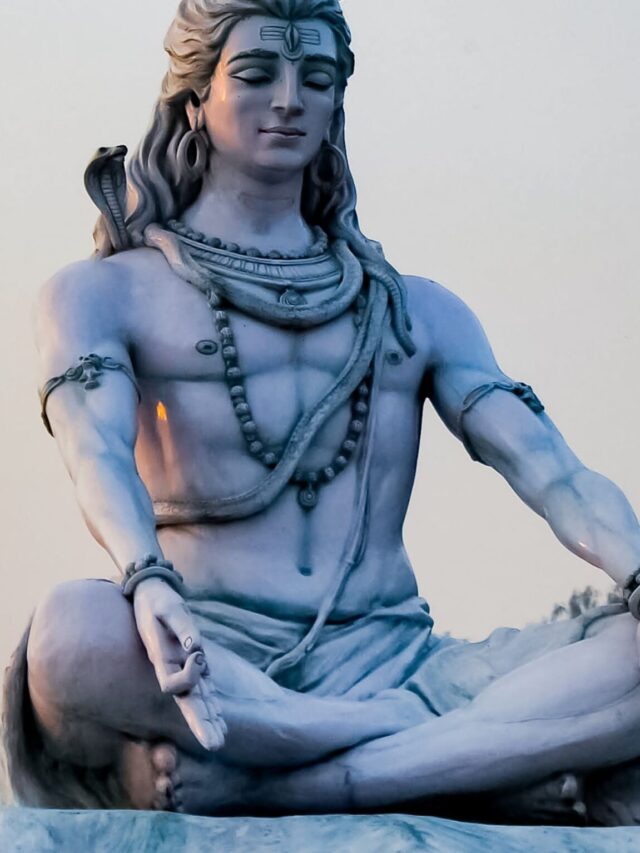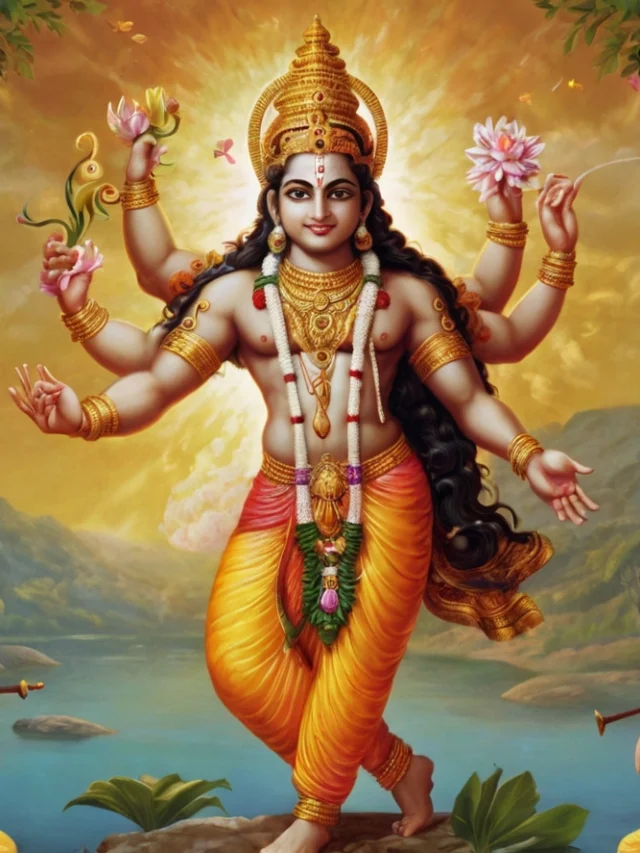The story of Arjuna and Urvashi: A Tale of Duty and Divine Wrath, drawn from the Mahabharata, explores themes of duty, temptation, and divine consequences. When the celestial nymph Urvashi approaches Arjuna with romantic intentions, he respectfully declines, seeing her as a motherly figure. Offended, Urvashi curses him to live as a eunuch for a year. This curse later becomes a blessing, aiding Arjuna during the Pandavas’ exile. This tale highlights Arjuna’s unwavering adherence to dharma (righteousness) and the intricate dynamics between human emotions and divine will.
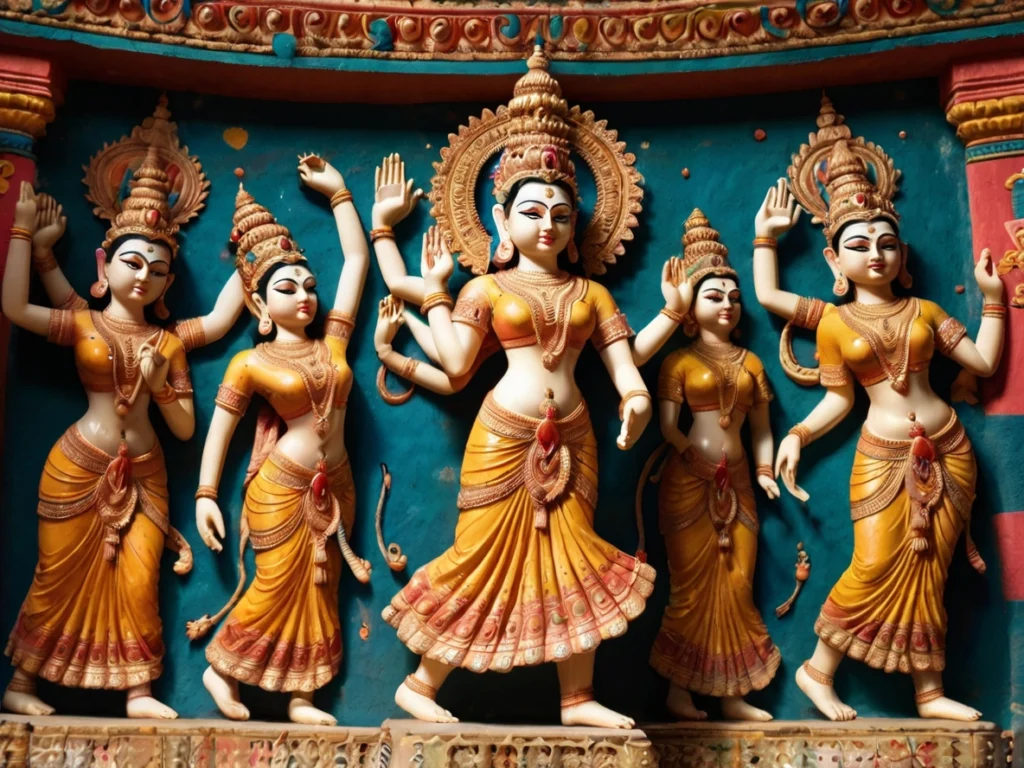
Background
The story of Arjuna and Urvashi is a fascinating episode from the Mahabharata, one of the two great Indian epics. This tale highlights the complexities of emotions, duty, and the consequences of one’s actions.
Arjuna, the third Pandava brother, was known for his unparalleled skill in archery and his deep sense of duty. After the Pandavas were exiled to the forest, they spent time learning various arts and skills from different sages and celestial beings. One such period was when Arjuna, during his pilgrimage, visited the heavenly abode of Indra, his father, who was also the king of the gods.
The Encounter with Urvashi
In the Mahabharata, The Encounter with Urvashi is a significant episode that illustrates the interplay between human virtue and divine temptation. This event takes place when Arjuna, the heroic third Pandava brother, visits the celestial realm of Indra, his divine father, during a period of exile.
Arjuna’s Arrival in Indra’s Court
After being exiled from his kingdom, Arjuna undertakes a pilgrimage that leads him to the heavenly abode of Indra, the king of the gods. Here, Arjuna is welcomed with great honor and is treated like a prince. Indra, proud of his son’s valor and righteousness, invites him to stay in his court and learn divine weapons and warfare from the gods. During his stay, Arjuna meets various celestial beings, including the beautiful apsaras—celestial nymphs known for their beauty, charm, and dancing skills.
Urvashi’s Attraction to Arjuna
Among the apsaras, Urvashi stands out as one of the most enchanting and revered. She has been the object of desire for many gods and mortals alike due to her unmatched beauty and grace. Upon seeing Arjuna, she is immediately struck by his handsome appearance, his aura of nobility, and his reputation as a great warrior. Arjuna’s virtues and his resemblance to his father, Indra, further captivate her. Urvashi feels a strong attraction towards Arjuna and decides to approach him.
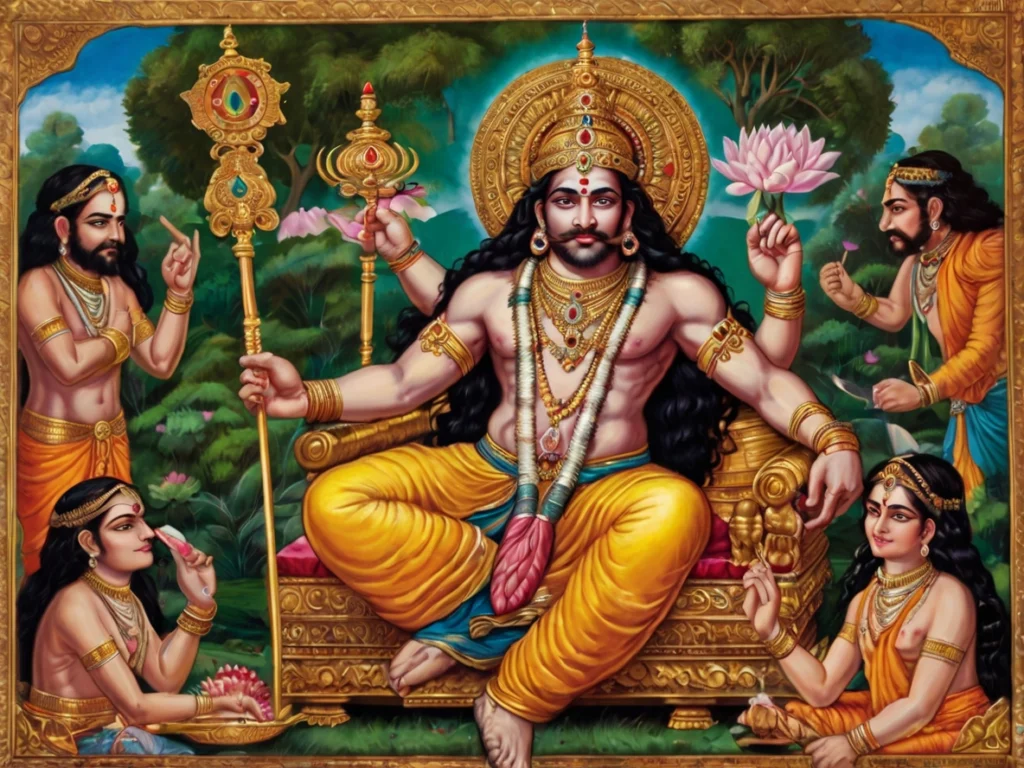
Arjuna’s Response
Arjuna, however, was taken aback by her proposition. He had great respect for Urvashi, as she was an apsara who had once been the consort of his ancestors. In particular, she had been associated with King Pururavas, an ancestor of the Pandavas. Arjuna, adhering to his principles and dharma, saw Urvashi as a motherly figure and politely declined her advances.
Arjuna explained to Urvashi that he could not accept her offer as he regarded her with the same reverence as he would his own mother. This rejection was deeply insulting to Urvashi, who was not accustomed to being turned down by any man, let alone a mortal.
Urvashi’s Curse
In her anger and humiliation, Urvashi cursed Arjuna, saying that he would lose his manhood and become a eunuch for the rest of his life. Arjuna was shocked by the curse, but he did not retaliate or argue with her. Instead, he accepted it as the will of the divine.
Later, when Indra learned of the incident, he softened the curse. He told Arjuna that the curse would last only for one year, and that it would turn out to be a blessing in disguise during the Pandavas’ exile. During their thirteenth year of exile, when they had to remain incognito, Arjuna used this curse to his advantage. He assumed the identity of Brihannala, a eunuch who served as a dance and music teacher in the court of King Virata. This disguise helped the Pandavas remain undetected by their enemies.
The story of Arjuna and Urvashi is a powerful narrative that underscores the importance of dharma (righteousness) in one’s life. Arjuna’s refusal to yield to temptation and his adherence to his principles, even in the face of potential divine wrath, exemplify his character as a true Kshatriya (warrior). The incident also illustrates the complex nature of emotions and how even divine beings are not immune to feelings of anger, pride, and desire.
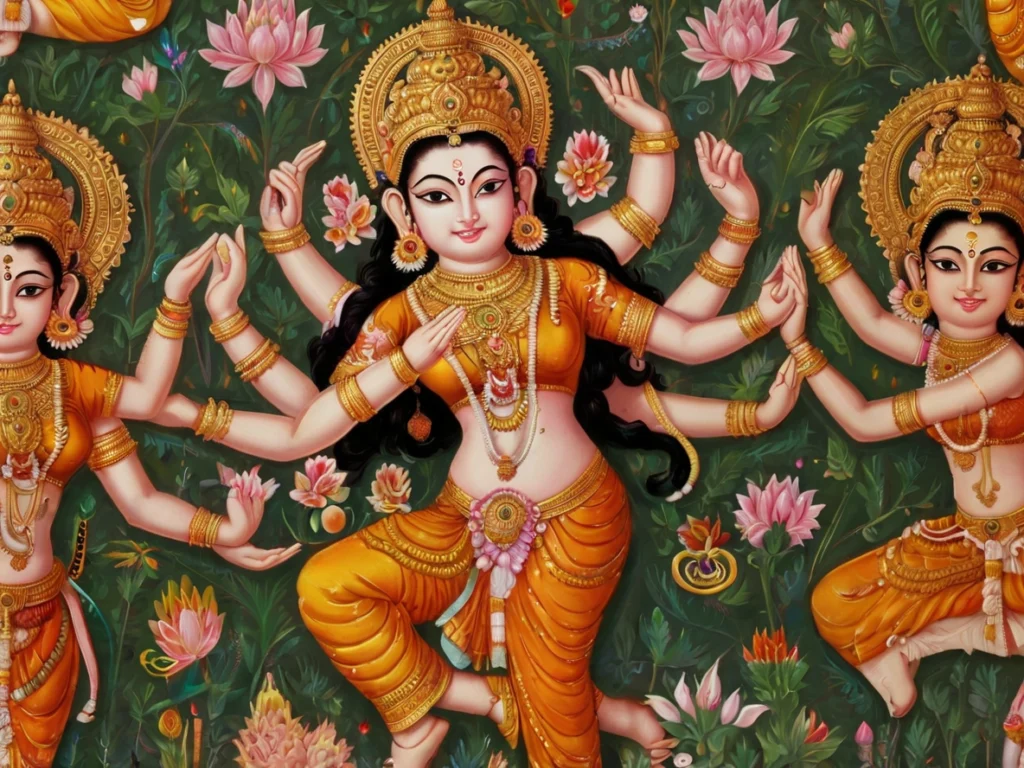
Indra’s Intervention
After Urvashi cursed Arjuna to lose his masculinity and become a eunuch, the news quickly reached Indra, the king of the gods and Arjuna’s father. Indra understood the gravity of the situation and the implications of the curse on Arjuna’s future. While Urvashi’s anger was justified in her own eyes, Indra recognized the righteousness of Arjuna’s actions and sought to find a way to mitigate the curse.
Indra, who deeply loved his son, summoned Arjuna to his court and reassured him. He acknowledged that Urvashi’s curse was powerful and could not be entirely undone due to the divine nature of the apsaras. However, Indra comforted Arjuna by explaining that the curse could, in fact, become a blessing if approached correctly.
Modification of the Curse
Indra then decided to intervene by modifying the curse. He declared that Arjuna would only have to live as a eunuch for a period of one year, rather than for the rest of his life as originally cursed by Urvashi. Indra revealed that this period of transformation would align with a critical moment in Arjuna’s future — the thirteenth year of the Pandavas’ exile, during which they were required to live in complete anonymity to avoid detection by their enemies.
The Curse Becomes a Blessing
Indra explained that the curse would help Arjuna fulfill the conditions of their exile. By transforming into a eunuch for a year, Arjuna could effectively disguise himself and remain hidden from those seeking to expose the Pandavas. Indra’s intervention transformed what seemed to be a punishment into a strategic advantage.
During the thirteenth year, Arjuna assumed the identity of Brihannala, a dance and music teacher, at the court of King Virata. In this guise, he lived among women and served as a tutor to Princess Uttara, effectively concealing his true identity. The curse-turned-blessing allowed Arjuna to fulfill the conditions of their exile, keeping him and his brothers safe.
Conclusion
Indra’s intervention was crucial in transforming a potentially devastating curse into a boon that ultimately served the greater good of the Pandavas. This act demonstrated Indra’s wisdom and compassion as a father and his deep understanding of fate and dharma. By mitigating Urvashi’s curse, Indra ensured that Arjuna’s adherence to righteousness was not in vain, while also reinforcing the idea that divine intervention can often work in mysterious and unexpected ways.

